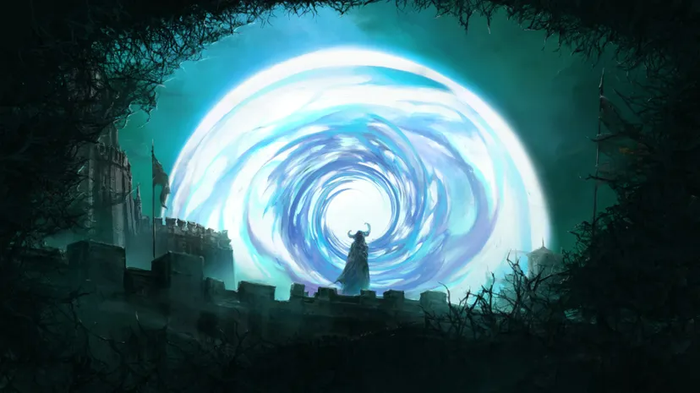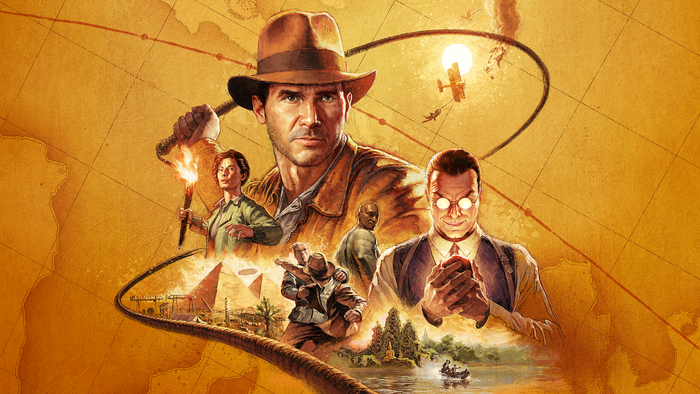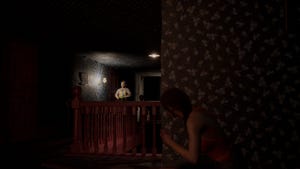
Something Wicked Games' stable of notable ex-Bethesda developers is gaining a new member. Will Shen, former design director on Starfield and veteran of Bethesda going all the way back to Fallout 3, is joining the all-remote studio as the lead content designer of Wyrdsong.
The hiring reunites Shen with former Bethesda project lead Jeff Gardiner, the founder of Something Wicked Games. In the last year, the studio has added industry veterans like Obsidian Entertainment's Robert Land, and Akil Hooper, as well as former BioWare Austin narrative designer Jessica Sliwinski.
Shen explained to Game Developer in an interview that his role at Something Wicked will be to serve as a bridge between the company's narrative and design teams. At Bethesda, his work included a mix of game writing and script implementation, which isn't the most common way for game studios to structure their narrative design workflows.
"It can be very easy....when you have a particular area of responsibility, you want to focus on just that part [of a game]," Shen explained. "But I think one of the things that makes triple-A role-playing games really come together is when it feels like the game has some kind of a singular direction."
Shen is the first Something Wicked hire we've spoken with since Gardiner founded the studio, and we wanted to know more about how the company's boldly professed values are being implemented in the team. Shen offered some additional context for his new role, shared some thoughts about Gardiner's vision of "constructive conflict," and gushed about his passion for the old-fashioned "wyrd" of Wyrdsong.
Seeing the start of Something Wicked Games
Shen's description of how Something Wicked Games intends to structure its narrative and design teams makes for an interesting snapshot of how new studios assemble their departments. The reasons for studios to split narrative and design teams are myriad, but one of them comes down to just how their tools are structured to accommodate implementing game narrative. Shen's journey from Bethesda to Something Wicked is notable on that front, because his position will help shape how the studio's technology grows in the years ahead—making us wonder how he wanted to improve on Bethesda's well-known Creation Engine.
"The nice thing about an established team and established toolset is that you already have a common language, but one of the exciting things about a new place with a new toolset is that you're building that language together and can do that with a lot of momentum," he mused.
.png?width=700&auto=webp&quality=80&disable=upscale)
"Momentum is really key in game development—it's staggering how much you can get done in a short amount of time when everyone is feeling that energy. Teams can get into a flow state and you can get a sense of what it's like when a project is really gaining ground and moving quickly."
Keeping folks in that "flow state" is of course, not just about giving them good tools to work with—it's also about bolstering motivation and ensuring they're working well together. Gardiner previously opined to us about the value of "constructive conflict"—creating environments where team members can disagree with each other in a constructive way.
It's all well and good for a studio founder to tout such values, but Shen will be one of the team leaders responsible for making sure it works. In his view, constructive conflict is a process to help everyone agree on a course of action, even if they have different opinions about it. "You want to do that as early as possible," he said. "The last thing you want is someone to say, 'it has to work this way,' then everyone shrugs and says, 'I guess we have to do that.' Then weeks or months go by where everyone's doing this course of action, but no one's really committed to it."
He noted that such conversations can be "difficult" but are important to getting team members to commit to a strategy they'll have to spend months executing. "You can get a lot of charge and energy around something even if you have misgivings about it, and have agreed to it," he observed.
Shen made a good pitch for what Gardiner preached, but the video game industry has been reckoning with how design processes like this don't always end up being especially inclusive—especially when folks from marginalized backgrounds are on the team, and may have additional reason to fear speaking their mind.
We quizzed Shen about how this philosophy works when a team member is quietly sitting in the corner. (Metaphorically speaking. Something Wicked is one of many all-remote studios, and those corners may be miles and miles away). "One of the important things about leadership is that whoever is at the highest level in terms of the hierarchy needs to be proactive and calling out [people], especially people who will be responsible for the decision," he replied.
Identifying who is responsible for implementing ideas sounded like one of the key parts of this leadership model—and making sure any misgivings that person may have about a decision are actively sought out instead of pre-emptively shutdown.
"It's really important...to turn to the position who's going to be most responsible for it and make sure they've stated their case."
Wyrdsong aims to be Weird with a capital W
Something Wicked Games has made a decent amount of noise about wanting to capture big-picture storytelling ideas in its hiring and game design. Gardiner and Shen each brought up the idea of a Joseph Campbell-ian "call to adventure" when it came to working on the team, and Shen was keen to gush about other mythical storytelling ideas he's been talking to his colleagues about.
"I'm reading Campbell's Romance of the Grail, which has been really interesting," he said. "I think the main [takeaway] is that the world is a weird place, right? I think we all experience that in some form or another."
(Obligatory aside, though Campbell is beloved in traditional game narrative circles, his work has faced new scrutiny in recent years—especially given his cringe-inducing comments about the role of women in fables and legends).
Shen didn't just mean "weird" in the conventional sense; he also spoke of the classical concept of the "wyrd" from Anglo-Saxon culture. The classic examples in Western culture include the supernatural happenings of William Shakespeare's tragedies like Macbeth and Hamlet—where ghosts and a trio of crones step outside the world of the supernatural to spur turbulence in political dramas.

"Sometimes we have this disconnect between 'hey, I perceive the world as this, but it feels like it's something else,' I think that's what a lot of these stories are about," he said. We discussed how Arthurian legend—often boiled down in the United States as a singular tale about a worthy chosen hero ascending to the throne of England—is full of downright weird shit, from the Lady of the Lake to The Green Knight to Morgan Le Fay.
"That's part of what makes that story so fascinating—the idea of a supernatural world that mirrors and is sort of beneath the surface of our own," he said with reverence. "It's not necessarily controlling everything but you feel it everywhere."
If anything, Shen thinks young developers should embrace a bit of the wyrd in their own journeys. When asked what he took away from concluding a long journey at Bethesda, it's that "you never know what's going to happen."
"Adventurism kind of runs in the blood of game development," he said. "We all entered this industry taking a big risk." He remembered in his first year of game development, thinking that there was an overabundance of rules he had to adhere to. His thinking shifted when he began thinking directly about what a player is seeing, feeling, doing, and experiencing in a game. "That's when it all clicked. That's the advice I would give—always thinking about your audience and what they're actually experiencing in the moment while they play."
Read more about:
FeaturesAbout the Author
You May Also Like









